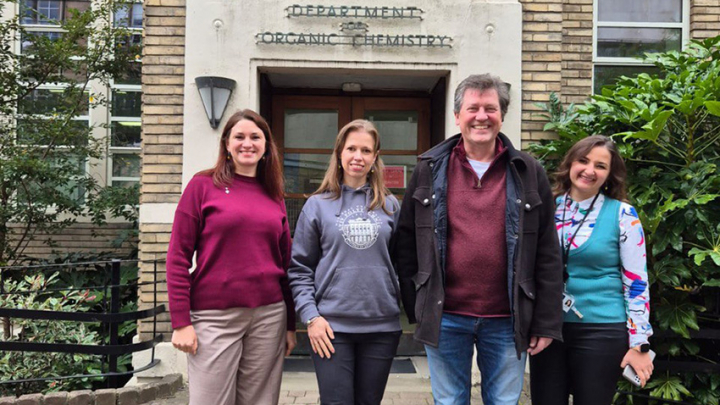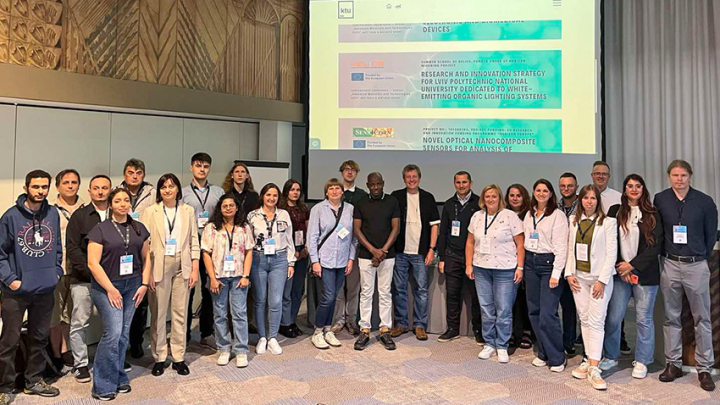The HELIOS project focuses on pioneering research into organic white light-emitting systems to develop the next generation of solid-state lighting technologies. Its scientific scope covers the development of ultra-efficient single-molecule white light emitters for applications in white light-emitting diodes (WOLEDs) and white light-emitting diodes (WLEDs). By combining fundamental research with practical applications, HELIOS is laying the foundation for cost-effective, high-performance, and environmentally sustainable next-generation lighting for various applications.
The overall goal of the HELIOS project is to increase the scientific level and innovation potential of Lviv Polytechnic National University and its programme partners Kaunas University of Technology, University of Glasgow, Riga Technical University, and Intelligentsia Consultants Sarl in the development of organic white light emitting systems for lighting applications. To achieve this goal, HELIOS will implement a three-year research and innovation (R&I) strategy based on five objectives, which are implemented through nine closely interconnected work packages.
‘Funded by the European Union. The views and opinions expressed are those of the authors alone and do not necessarily reflect the views of the European Union or the European Research Executive Agency (REA). Neither the European Union nor the grantor can be held responsible for them.’


